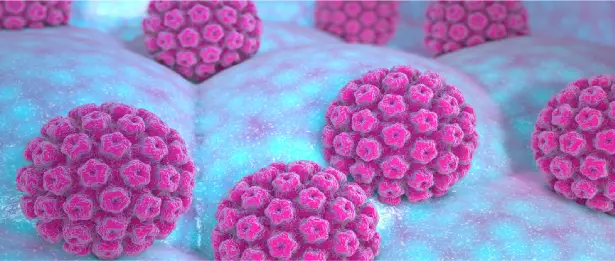HPV Vaccine

What is HPV (Human Papillomavirus)?
Human papillomavirus (HPV) infects approximately 14 million people, including young people, each year. While most HPV infections go away on their own, infections that do not go away can lead to genital warts and certain types of cancer. Approximately 32,500 people each year develop a cancer caused by HPV. It is very important that children receive the HPV vaccine starting from the age of 9. Vaccines can protect the child when administered before exposure to the disease agent.
Why is HPV Vaccine Done?
The following diseases can be prevented with the HPV vaccine:
- Cervical cancer in women
- Vaginal and vulvar cancers in women
- Anal cancer in women and men
- Throat cancer in women and men
- Penile cancer in men
- Possible warts on the body
Additionally, the HPV vaccine prevents the development of HPV-related diseases. The HPV vaccine also prevents infection with the types of HPV that cause genital warts in men and women.
How is HPV Transmitted?
HPV infection is mostly transmitted after sexual contact, and most people become infected with HPV at some stage in their lives. Most infections heal on their own without causing any serious problems. However, thousands of women and men may develop cancer or other HPV-related diseases.
Does HPV Vaccine Cause Disease?
The vaccine is made from a protein from the virus and is non-infectious, meaning it cannot cause HPV infection or cancer.
Is HPV Vaccine Given to Children?
Children can be vaccinated against HPV starting from the age of 9. Vaccines can protect the child when administered before exposure to the disease agent. Therefore, sufficient time must be given for the child to gain immunity by administering this vaccine before encountering the virus.
What Should be the HPV Vaccine Dosage?
The recommended vaccination schedule is to administer 2 doses of vaccine with an interval of 6-12 months, around the age of 11-12. Individuals over the age of 15 are recommended to receive 3 doses of vaccine within a 6-month period (0-1/2 months-6 months).
Is HPV Vaccine Given to Boys?
HPV vaccine prevents the development of many HPV-related diseases in men, such as penile cancer, anal cancer, throat cancer and wart formation.
Does HPV Vaccine Protect?
Studies that have been going on for about 10 years show that the level of protection remains high in individuals vaccinated against HPV.
Is HPV Vaccine Safe?
HPV vaccine is a safe vaccine.
What are the HPV Vaccine Side Effects?
Some side effects may be observed after HPV vaccination, as it is after any kind of medication administration. Although these side effects are very rare, they are mostly;
- Pain at the injection site
- Local side effects such as redness and swelling
- Weakness
- Nausea
- Headache
These are mild effects and go away within a few days. Fainting may be observed in some adolescents after vaccination. Therefore, after the injection, your child should sit for a while and not stand up immediately.
Does HPV Vaccine Cause Allergies?
As with any medication, allergic reactions may occur after the HPV vaccine. You should not leave the healthcare facility for 15-30 minutes after vaccination. After this process, the possibility of developing an allergic reaction is lower. In such a case, it is necessary to apply to the emergency department of the nearest health institution.
As with any medication, the chance of a vaccine causing a serious allergic reaction is very low. If you have had an allergic reaction to any substance, medicine, food or vaccine before, you should definitely inform your doctor before vaccination.
Does HPV Vaccine Cause Infertility?
There is no evidence to suggest that the HPV vaccine causes fertility problems. However, failure to receive the HPV vaccine leaves people vulnerable to HPV cancers and precancerous lesions.
Women who develop a precancerous lesion or cancer caused by HPV may need treatment that will limit their ability to have children, such as hysterectomy, chemotherapy, or radiation.
Treatment of lesions that are precursors to cervical cancer may also cause problems that may lead to premature birth in women.
* Contents of this page is for informational purposes only. Please consult your doctor for diagnosis and treatment. The content of this page does not include information on medicinal health care at Liv Hospital









